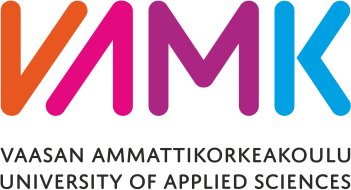Käytämme evästeitä verkkosivuillamme parantaaksemme käyttäjäkokemustasi, kerätäksemme sivuston käyttöä koskevia tilastoja sekä markkinoinnin seurantaan ja kohdentamiseen. Voit joko hyväksyä kaikkien evästeiden käytön, kieltää muut kuin välttämättömät evästeet tai valita käytettävät evästeet.
Voit milloin tahansa muuttaa tekemääsi valintaa oikean alalaidan kelluvan keltaisen "hallinnoi evästeiden suostumusta" –painikkeen tai
Evästekäytäntö -sivun kautta.
Välttämättömät evästeet ovat tärkeitä verkkosivustomme perustoiminnoille ja ominaisuuksille, joita ilman verkkosivustomme ei toimi. Välttämättömien evästeiden avulla esimerkiksi ylläpidetään suostumusta, kieliasetuksia sekä suojaudutaan roskaspostilta.
Toiminnallisilla evästeillä lisätään ja parannetaan sivustomme toiminnallisuutta, mutta ne eivät ole ehdottoman välttämättömiä sivuston käyttämiseksi. Näillä evästeillä varmistetaan, että tietyt verkkosivuston osat parantavat käyttäjäkokemusta, kuten esimerkiksi ostoskorin sisällön muistaminen tai lomakkeiden automaattinen täyttö.
Tekninen tallennus tai pääsy, jota käytetään yksinomaan tilastollisiin tarkoituksiin.
Tilastollisten evästeiden tarkoituksena on kerätä tietoja kuinka käytät verkkosivustoamme kuten mitä linkkejä painat tai millä sivulla vierailet. Näitä tietoja käytämme sivuston kehittämiseen ja käyttökokemuksen parantamiseen. Kaikki näiden evästeiden keräämä tieto on anonyymia tilastotietoa. Jos et hyväksy näitä evästeitä, emme tiedä miten käytät sivustoamme, emmekä näin ollen tiedä mitkä sisällöt mahdollisesti koet hyödylliseksi.
Markkinointievästeitä hyödynnämme markkinoinnin tehokkuuden mittaamiseen, kun käyttäjät siirtyvät kolmannen osapuolen markkinointialustoilta sivustollemme. Markkinointievästeiden avulla voimme kohdentaa sinulle mainoksia eri verkkosivustoilla sekä sisältöä sosiaalisessa mediassa. Jos et hyväksy näitä evästeitä, et näe kohdennettua markkinointia.

